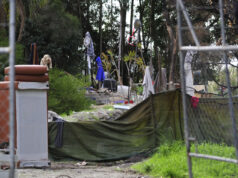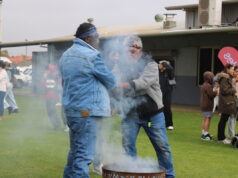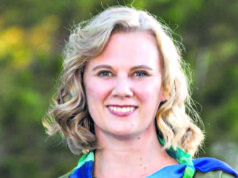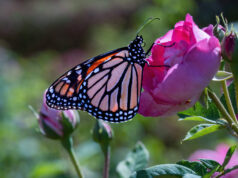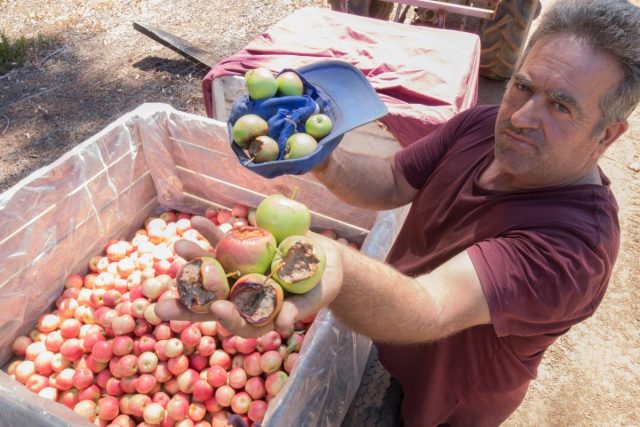
Orchardists in Jarrahdale have started noticing greater numbers of lorikeets plaguing their harvests, leading to less fruit making it to the market shelves.
Longvalley Orchard sole owner Tony Trichilo said they have always lost fruit to birds of different sorts, but this season they have had a taste of the lorikeets which are an introduced species from Queensland.
“This year we got to see the devastation that they can cause to not only fruit that was close to ripening but also fruit that was prior to maturity,” he said.
“We have been trying to shoot as many of them as we can because legally we are allowed to but unfortunately as many hours we have spent out there, there was very little relief when they were around.”
Mr Trichilo said he lives on site so he was able to do some of the shooting himself, but that takes him away from his other jobs.
“We are fruit growers, we should be picking the fruit and packing it rather than walking around the orchards shooting these birds,” he said.
“Over the Christmas period we were picking a couple of varieties of nectarines and we threw a third of the fruit away.
“Once they are pecked, whether it be once, three times or half eaten we have to chuck them out.”
Mr Trichilo told The Examiner collectively the growers, the public and some government bodies need to get on board to help solve the issue.
“No one wants to kill anything but sometimes when you have a problem like we do, people need to understand the consequences at hand,” he said.
“Shooting these birds is a very touchy subject but the public need to understand and consider where their food is coming from.”
Jarrahdale Orchard owner Louie Gianatti said he too has experienced issues with lorikeets and was concerned about the outcome if the numbers were not reduced.
“I do not like shooting but unfortunately if you don’t control them, we as orchardists would have major headaches,” he said.
“We could lose five to ten per cent of the crop at any one time.
“In my opinion, in the long term if nothing is done, it wouldn’t be viable to continue.”


